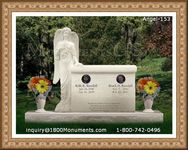|
What To Know When Being Guest At Jewish Funeral Services
A traditional Jewish funeral has certain elements to it. The main aim of these rituals is to honor the dead person, while being sensitive to his surviving family members. Generally, the specific customs carried out depends on the community the deceased person hailed from. But there are general customs that are observed at most burials.
Burial should take place as soon as possible. This is normally on the same day that the person has died. However, since it is not always possible to have all the family members around when the person dies, it may be necessary to delay the burial for sometime until all the mourners have arrived. It is up to the family to decide if they will delay the burial or not.
Viewing of the body is not allowed. The casket is normally sealed during the memorial service and burial. The casket chosen should be simple and be made out of wood only. No metallic parts are allowed as metal is not biodegradable.
For the process of decomposition to take place naturally, embalming is not allowed. However, since Jewish customs are subject to local laws, it may be necessary to have the body embalmed. This is so as to satisfy the public health regulations set by the local council.
The burial ceremony does not take a long time. It can be completed in less than half an hour. Flowers are normally considered as frivolous adornments, so they are often avoided at burials. If you wish, you can choose to have a small floral tribute, as long as the officiant is not opposed to it. Mourners cannot talk to the attendees until the whole burial ceremony is over.
When leaving the graveside, attendees at a Jewish funeral form a double line facing each other. The mourners pass in the middle and receive consolation messages from others. Any kind words of comfort are offered at this time. Mourners may symbolically wash their hands before leaving the cemetery as a sign of cleansing.
|
|



























